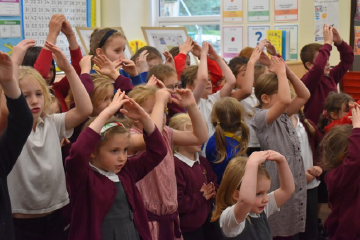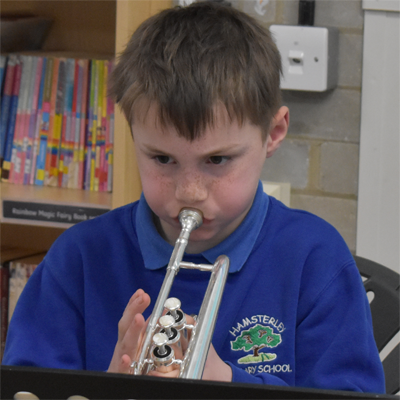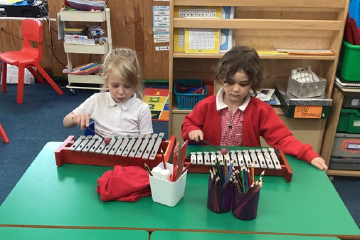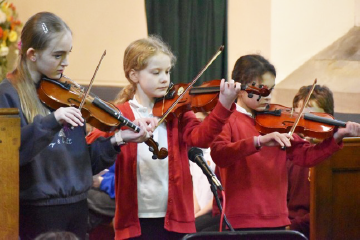

Music

Music is a universal language that embodies one of the highest forms of creativity. A high-quality music education should engage and inspire pupils to develop a love of music and their talent as musicians, and so increase their self-confidence, creativity and sense of achievement. As pupils progress, they should develop a critical engagement with music, allowing them to compose, and to listen with discrimination to the best in the musical canon.
Aims
The national curriculum for music aims to ensure that all pupils:
- perform, listen to, review and evaluate music across a range of historical periods, genres, styles and traditions, including the works of the great composers and musicians
- learn to sing and to use their voices, to create and compose music on their own and with others, have the opportunity to learn a musical instrument, use technology appropriately and have the opportunity to progress to the next level of musical excellence
- understand and explore how music is created, produced and communicated, including through the inter-related dimensions: pitch, duration, dynamics, tempo, timbre, texture, structure and appropriate musical notations.

We use the Charanga music scheme as a starting point for the planning of music sessions but Music teaching also incorporates resources from the Cornerstones projects. We also access the support from the Durham Music service, who deliver music lessons to KS2 children and peripatetic music lessons to those children who wish to learn a musical instrument.
In addition to the Durham Music service provision and peripatetic lessons, we engage in workshops with local artists and performers, such as our recent ‘Light in the Dark’ project with Music at the heart of Teesdale.


